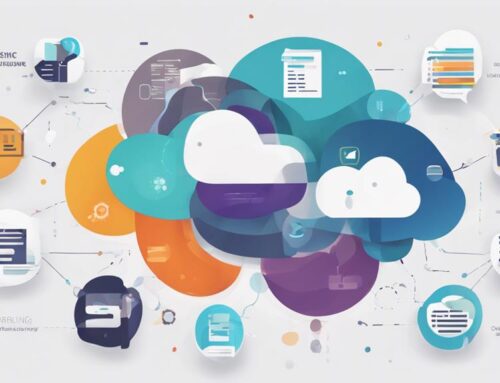When it comes to managing your data effectively, the choice between handling everything in-house or outsourcing key tasks can significantly impact your organization’s efficiency and success. Imagine the benefits of streamlining your data entry, conversion, cleansing, and analytics processes through strategic partnerships with specialized providers. By delegating these essential functions, you not only ensure operational excellence but also gain access to cutting-edge technologies and expertise that can propel your business to new heights. Wouldn’t you like to discover which common data management tasks to outsource are best suited to drive your organization’s growth and competitiveness in today’s data-driven landscape?
Data Entry Outsourcing
If you frequently find yourself overwhelmed by the sheer volume of data entry tasks that need to be completed, outsourcing this function may be a strategic solution to consider. Accuracy verification and document indexing are crucial aspects of data entry that require meticulous attention to detail. By outsourcing these tasks to specialized service providers, you can ensure that your data is accurately entered and organized efficiently.
Accuracy verification is essential in data entry to maintain the integrity of information. Outsourcing this function to experts can help minimize errors and ensure that the data entered is reliable and precise. Document indexing, another critical component of data entry, involves categorizing and organizing information for easy retrieval. Outsourcing this task can streamline the process, making it easier to access and manage data effectively.
Data Conversion Services
Data Conversion Services play a crucial role in efficiently transforming data from one format to another, ensuring compatibility and accessibility across various platforms. When considering outsourcing data conversion, it is essential to understand the techniques and tools involved. Data conversion techniques encompass processes like XML conversion, PDF conversion, image conversion, and more. Various data conversion tools are available, such as ETL (Extract, Transform, Load) tools and specialized software for specific conversions.
Despite the benefits, data conversion poses challenges like data integrity maintenance, potential data loss, and accuracy issues during the process. To mitigate these challenges, meticulous attention to detail in the data conversion processes is crucial. It is vital to validate the converted data to ensure accuracy and consistency post-conversion.
Outsourcing data conversion services can streamline the process, especially when dealing with large volumes of data or complex conversions. By leveraging external expertise, businesses can efficiently handle data conversion tasks while focusing on core operations.
Data Cleansing Solutions
When it comes to data cleansing solutions, outsourcing can bring about numerous benefits for your business. By leveraging external expertise and resources, you can ensure that your data is consistently accurate and up to date. Implementing best practices for cleansing will further enhance the quality and reliability of your data, ultimately leading to more informed decision-making processes.
Benefits of Outsourcing
Outsourcing data cleansing solutions can provide a myriad of benefits for organizations looking to enhance the quality and accuracy of their data. By engaging in strategic partnerships with specialized data cleansing providers, businesses can tap into expertise and technologies that may not be readily available in-house. This collaboration allows for a more targeted approach to cleansing data, resulting in improved data quality and integrity.
Operational efficiencies are another key advantage of outsourcing data cleansing tasks. External providers are equipped with the necessary tools and resources to efficiently process large volumes of data, saving organizations time and effort. This streamlined process not only accelerates the data cleansing process but also frees up internal resources to focus on core business activities.
Best Practices for Cleansing
Implementing effective data cleansing solutions requires a methodical approach that prioritizes accuracy and consistency in your organization’s datasets. Data integrity is crucial in ensuring that your data is reliable and trustworthy for making informed business decisions. To achieve this, employing robust error detection mechanisms is essential. By implementing automated data cleansing tools, you can streamline the process of identifying and rectifying discrepancies in your datasets efficiently.
When cleansing your data, it is imperative to establish clear criteria for identifying errors and inconsistencies. Regularly monitoring data quality and implementing validation rules can help maintain the integrity of your datasets. Additionally, conducting thorough data profiling to understand the structure and relationships within your data can aid in identifying potential errors.
Furthermore, leveraging data cleansing solutions that offer customizable cleansing rules can help address specific data quality issues unique to your organization. By continuously refining and optimizing your data cleansing processes, you can ensure that your datasets remain accurate, consistent, and reliable for driving successful business outcomes.
Data Migration Support
Handling data migration can be a complex and time-consuming process for any organization looking to transition between systems or upgrade existing technology. When considering data migration support, outsourcing can provide valuable expertise and resources to ensure a smooth transition. Here are some key aspects to consider:
- Data Integration Services: Utilize specialized services to seamlessly integrate data from various sources into the new system.
- Data Migration Planning: Develop a comprehensive plan outlining the migration process, timelines, and responsibilities.
- Data Mapping Strategies: Implement effective strategies to map data fields from the legacy system to the new platform accurately.
- Legacy System Migration: Ensure a systematic approach to migrating data from outdated systems to modern ones.
- Expert Guidance: Benefit from experienced professionals who can navigate potential challenges and optimize the data migration process efficiently.
Outsourcing data migration support can streamline the transition process and minimize risks associated with handling it internally.
Data Analytics Outsourcing
When it comes to data analytics outsourcing, you can reap various benefits. By leveraging the expertise of professionals in data analysis, you gain insights that can drive strategic decision-making. Additionally, outsourcing data analytics often proves to be a cost-effective solution compared to maintaining an in-house team.
Benefits of Outsourcing
Outsourcing data analytics can offer numerous advantages to organizations seeking to leverage their data effectively. When considering the benefits of outsourcing data analytics, several key advantages stand out:
- Cost Effectiveness: Outsourcing data analytics can provide a cost-effective solution compared to hiring in-house experts, as you only pay for the services you need.
- Efficiency Benefits: Outsourcing allows you to tap into expert resources quickly, saving time on recruiting and training efforts.
- Access to Specialized Skills: Outsourcing gives you access to a diverse talent pool with specialized skills in data analysis, ensuring high-quality outcomes.
- Scalability: Outsourcing partners can adjust their services based on your organization’s changing needs, providing scalability and flexibility.
- Focus on Core Activities: By outsourcing data analytics, your organization can focus on core business activities while experts handle the data analysis tasks efficiently.
These benefits make outsourcing data analytics a compelling option for organizations looking to enhance their data management capabilities effectively.
Data Analysis Expertise
With the increasing volume of data generated by organizations today, the demand for proficient data analysis expertise has become paramount. Outsourcing data analysis tasks can provide access to specialized skills in data visualization techniques and statistical modeling methods that are essential for deriving valuable insights from complex datasets. Data visualization techniques allow for the representation of data in a graphical format, making it easier to identify trends, patterns, and outliers. Statistical modeling methods, on the other hand, enable businesses to make predictions, identify correlations, and test hypotheses based on the data at hand.
Cost-Effective Solutions
To achieve cost-effective solutions in data analytics outsourcing, organizations must carefully evaluate their needs and objectives before partnering with external providers. When considering cost-effective options, leveraging a remote workforce and forming offshore partnerships can significantly impact the overall expenses. Here are five key strategies to enhance cost-effectiveness in data analytics outsourcing:
- Utilize a remote workforce: Hiring remote data analysts can lower costs associated with office space, utilities, and other overhead expenses.
- Explore offshore partnerships: Offshore providers often offer competitive pricing while maintaining high-quality services.
- Implement efficient project management tools: Streamlining processes through technology can reduce time and costs.
- Regular performance evaluations: Monitoring provider performance ensures that resources are utilized effectively.
- Continuous training and upskilling: Investing in the development of the outsourced team can lead to improved efficiency and cost savings in the long run.
Data Security Management
When considering data security management, it is crucial to prioritize the protection of sensitive information and safeguarding against potential cyber threats. Outsourcing data security management can provide your business with specialized expertise in areas such as data breach prevention and security audits. Security audits help identify vulnerabilities in your systems, allowing for proactive measures to be taken to prevent data breaches. Additionally, outsourcing can provide access to cybersecurity training for your employees, ensuring they are well-equipped to handle security threats effectively.
Encryption protocols play a vital role in data security management, and outsourcing can help implement robust encryption measures to protect your data from unauthorized access. By leveraging encryption technologies, sensitive information is encoded, making it unreadable to anyone without the proper decryption key. This adds an extra layer of security to your data, safeguarding it from cyber threats.
Database Administration Services
When it comes to Database Administration Services, ensuring robust Database Security Measures is crucial in safeguarding your organization’s valuable data. Implementing effective data backup strategies is equally important to prevent data loss and ensure business continuity. Outsourcing these tasks to experienced professionals can help streamline operations and provide peace of mind regarding the security and integrity of your data.
Database Security Measures
Database security measures are crucial components of effective database administration services. Ensuring the confidentiality, integrity, and availability of your organization’s data is paramount in today’s digital landscape. When outsourcing database security measures, consider the following key aspects:
- Encryption Techniques: Implement strong encryption algorithms to protect sensitive data from unauthorized access.
- Access Controls: Utilize robust access control mechanisms to restrict database access to authorized personnel only.
- Intrusion Detection: Employ intrusion detection systems to monitor and detect any unauthorized activities or potential security breaches.
- Monitoring Systems: Set up comprehensive monitoring systems to track database activity and identify any suspicious behavior promptly.
- Regular Security Audits: Conduct regular security audits to assess the effectiveness of security measures and identify areas for improvement.
Data Backup Strategies
To ensure the resilience and continuity of your organization’s data assets, implementing robust data backup strategies is paramount within the realm of database administration services. Data backup strategies involve creating duplicate copies of data to safeguard against data loss due to system failures, human errors, cyber-attacks, or natural disasters. Utilizing cloud storage for data backups offers scalability, cost-efficiency, and accessibility from anywhere, enhancing disaster recovery capabilities.
Cloud storage enables automatic backups, ensuring data is continuously protected without manual intervention. It also provides encryption and redundancy features, enhancing data security and reliability. Disaster recovery plans should include regular backup schedules, testing procedures to verify data recoverability, and offsite storage to mitigate risks associated with on-premises data storage.
Data Warehousing Solutions
Curious about how data warehousing solutions can streamline your data management processes and enhance decision-making capabilities? Data warehousing plays a crucial role in organizing and analyzing vast amounts of data efficiently. Here are some key aspects to consider:
- Data Visualization Services: Utilize tools that help in presenting data in a visually appealing format, aiding in better understanding and interpretation.
- Data Integration Solutions: Seamlessly combine data from various sources to create a unified view, enabling comprehensive analysis.
- Data Governance Strategies: Implement policies and procedures to ensure data integrity, security, and compliance with regulations.
- Data Architecture Design: Develop a robust data framework that supports the storage, retrieval, and processing of data effectively.
- Scalability and Performance: Opt for solutions that can scale with your business growth while maintaining high performance levels.
Data Backup and Recovery
Efficient data management extends beyond just organizing and analyzing data; it also involves safeguarding your valuable information through robust backup and recovery processes. Disaster recovery planning is crucial to mitigate risks associated with data loss, ensuring business continuity in the face of unforeseen events. By outsourcing data backup and recovery tasks, you can gain access to specialized expertise and resources that can enhance the security and reliability of your data storage.
Offsite backup services offer an additional layer of protection by storing copies of your data in secure external locations, reducing the risk of data loss due to physical damage or theft. Cloud storage solutions provide scalability and flexibility, allowing for seamless data restoration in the event of system failures or cyber-attacks. By leveraging these technologies through outsourcing, you can streamline your data management processes and focus on core business activities while ensuring the integrity and availability of your critical information.
Catalogue Management Services
When considering the complexities of data management, one crucial aspect that often requires specialized attention is Catalogue Management Services. Outsourcing this task can streamline your operations and ensure accurate product categorization and efficient inventory tracking. Here are five key reasons why outsourcing Catalogue Management Services can benefit your business:
- Enhanced Product Categorization: Outsourcing Catalogue Management Services can help ensure that products are accurately categorized, making it easier for customers to find what they are looking for.
- Improved Inventory Tracking: Professional catalogue management services can provide real-time updates on inventory levels, minimizing the risk of stockouts or overstock situations.
- Cost-Effective Solutions: Outsourcing can offer cost-effective solutions compared to in-house management, saving you both time and resources.
- Expertise and Specialized Knowledge: Outsourcing Catalogue Management Services grants access to experts who possess specialized knowledge in optimizing product listings and inventory management.
- Scalability and Flexibility: Outsourcing allows for scalability, enabling your business to adapt quickly to changing inventory needs and market demands.
Frequently Asked Questions
Can Outsourcing Data Management Tasks Save My Company Money?
Outsourcing data management tasks can indeed save your company money. By leveraging external expertise, you streamline operations, reduce overhead costs, and enhance data security. This strategic move can lead to significant cost savings in the long run.
How Can I Ensure the Security of My Outsourced Data?
To ensure data security when outsourcing, conduct thorough vendor assessments, implement encryption protocols, enforce strict access controls, and regularly audit data handling procedures. Stay vigilant against potential outsourcing risks by monitoring activities and establishing clear contractual obligations.
What Are the Benefits of Outsourcing Data Analytics?
To maximize efficiency in outsourcing, you gain a competitive edge by tapping into specialized expertise and cutting-edge tools. Data analytics outsourcing benefits include improved decision-making, cost savings, scalability, and enhanced focus on core operations.
Is It Possible to Customize Data Management Services?
Yes, it is possible to customize data management services, allowing you to tailor solutions to your specific needs. This customization can lead to enhanced efficiency, improved data quality, and significant cost savings by focusing on what matters most to your organization.
How Can Outsourcing Data Management Improve Efficiency?
Outsourcing data management can significantly boost your efficiency. With increased productivity and cost savings, you benefit from streamlined processes and expert support. Focus on core tasks while experienced professionals handle your data needs.




